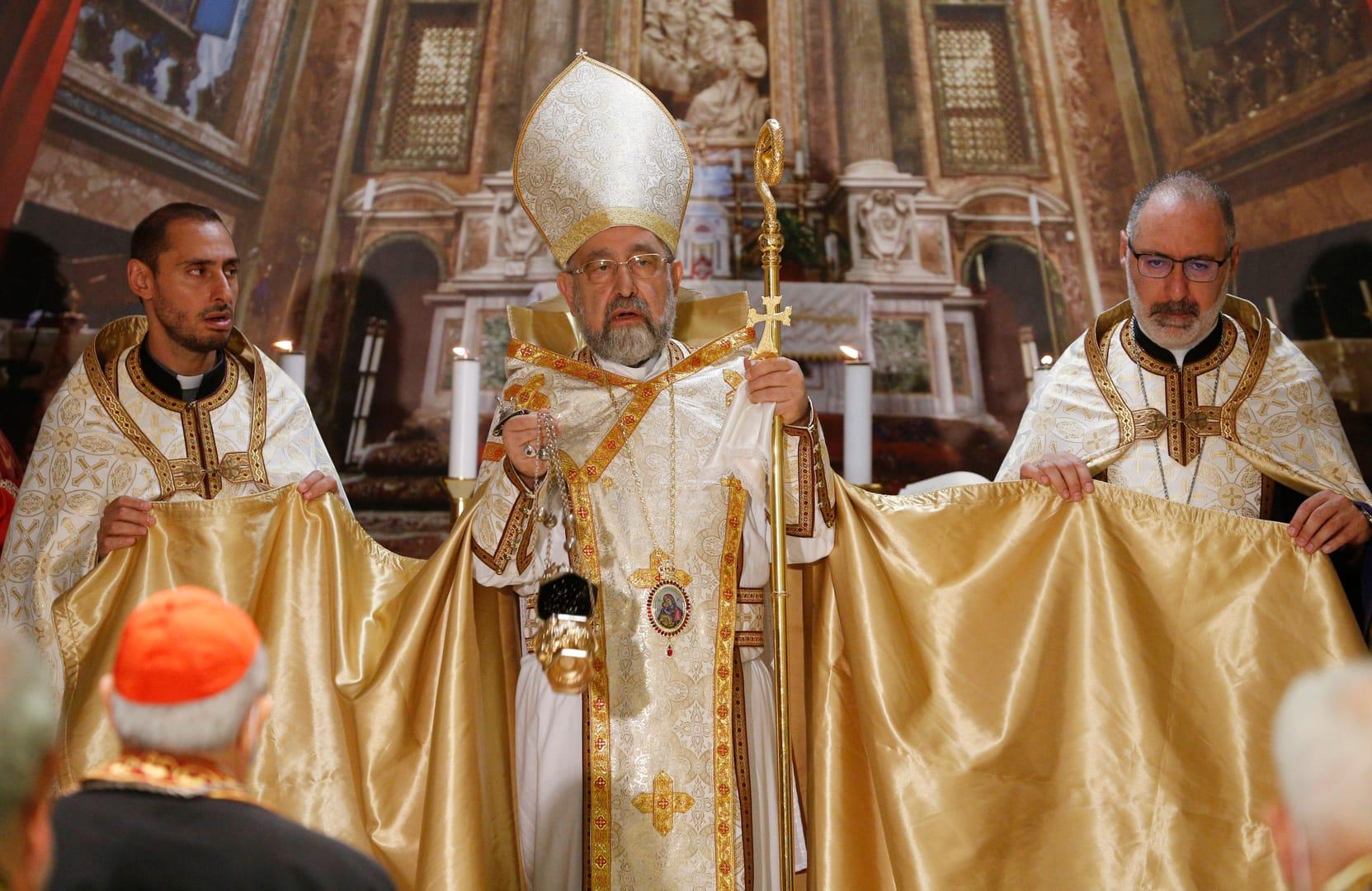ROME — The bishops of the Armenian Catholic Church elected Archbishop Raphaël François Minassian, the ordinary for Armenian Catholics in Eastern Europe, to be their church’s new patriarch.
Upon his election, the 74-year-old patriarch took the name Patriarch Raphaël Pierre XXI Minassian, the Vatican said in an announcement Sept. 23.
The patriarch-to-be and his 11 confreres began meeting in Rome Sept. 20 to begin their second attempt at electing a patriarch.
The bishops had met in Lebanon for two weeks beginning June 22, but no candidate had garnered the two-thirds vote necessary to succeed Patriarch Grégoire Pierre XX Ghabroyan, who died in Beirut May 25.
In accordance with church law, after the unsuccessful election, the bishops turned to Pope Francis. He asked them to gather in Rome and begin the electoral process again Sept. 22 after two days of prayer and reflection.
Patriarch Minassian was born in Beirut Nov. 24, 1946, and prepared for the priesthood at the patriarchal seminary in Bzommar before studying philosophy and theology at Rome’s Pontifical Gregorian University and doing special studies in educational psychology at the Pontifical Salesian University.
Ordained to the priesthood in 1973, he served as pastor in Armenian parishes in Lebanon and as secretary for five years to Patriarch Jean Pierre XVIII Kasparian.
After serving as a judge in the Armenian church tribunal in Beirut and teaching Armenian at a Catholic university, he was transferred to the United States where he served as a pastor in New York before serving as pastor of Armenian Catholics in California, Arizona and Nevada.
In 2005, he was named patriarchal exarch of Jerusalem and Amman and was named an archbishop and the ordinary for Armenians in Eastern Europe in 2011.
Before electing the new patriarch, the Armenian bishops had two days of prayer in Rome.
Preaching at the opening Divine Liturgy Sept. 20, Cardinal Leonardo Sandri, prefect of the Congregation for Eastern Churches, told the bishops that just as they believe “the elements of the earth, such as bread and wine” are transformed by the Holy Spirit into the body and blood of Christ, they must believe they, too, can be transformed by the Spirit.
“We who are constituted as ministers of the Eucharist, who invoke in the epiclesis the outpouring of the Spirit of consecration, we risk at times setting limits to the Paraclete, keeping in ourselves, in our hearts or in our judgment of others areas of shadow where the only criterion is personal or worse, that of the spirit of the world,” the cardinal said.
“With the bread and the wine,” he told them, “place your personal lives and those of your brother bishops on the altar, asking for yourselves and for them the gift of purification, transformation and mission.”
After decades of suffering persecution and the ravages of war in their traditional homelands, members of the Armenian Catholic Church now live in communities scattered across the globe, Sandri said. He prayed that the Holy Spirit would guide the bishops because their people “need shepherds who will lead them, seek them out, and know how to call them by name like the good shepherd described in the Gospel.”













